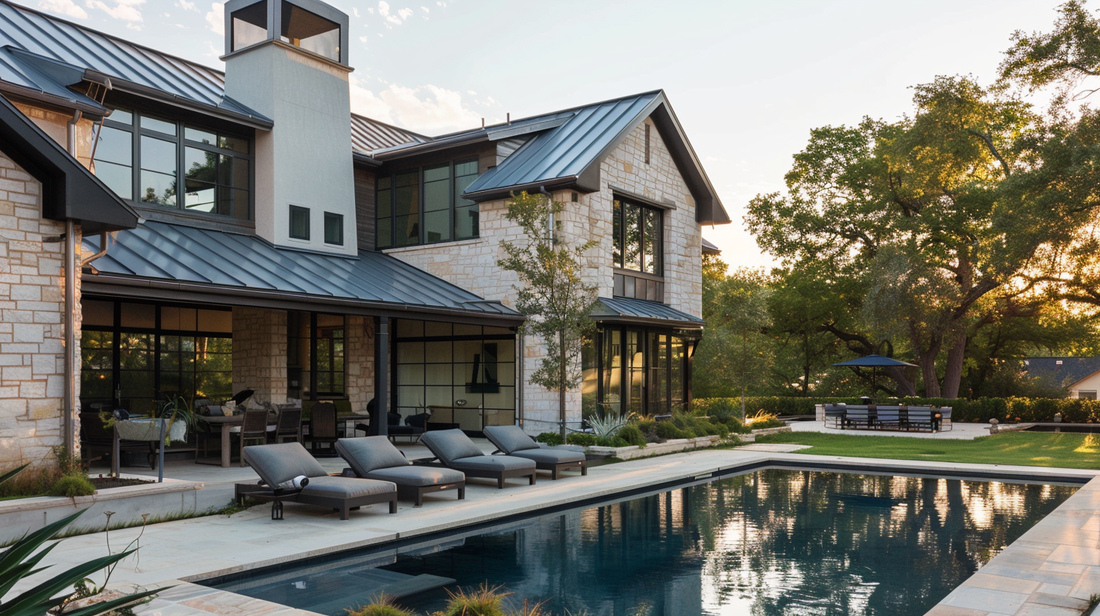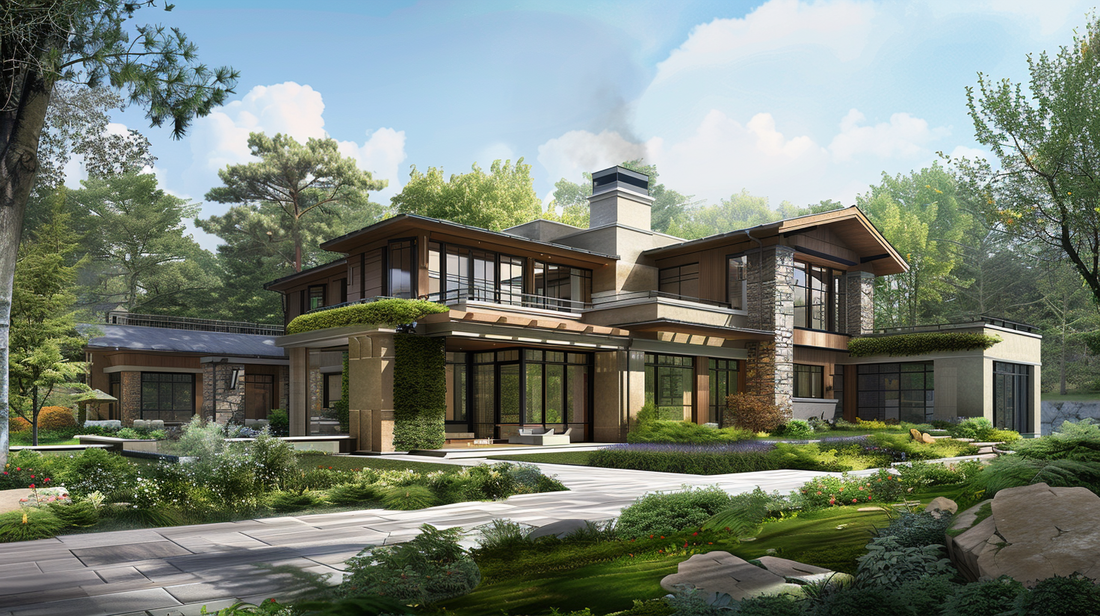When it comes to building your dream house in Colorado, choosing the perfect location is just as important as the design and features of the home itself, whether you’re looking at Denver’s neighborhoods or in the mountains. Colorado is known for its stunning natural beauty, outdoor recreation opportunities, gorgeous mountain views, and vibrant cities, Colorado offers a wide range of options for those looking to build their ideal residence. Gourmet Real Estate will guide you through the key factors to consider when selecting the ideal location for your new custom home build in Colorado.
Colorado Home Lifestyle and Amenities
One of the first things to consider when choosing a location for your custom home is your desired lifestyle, the amenities like golf courses you want nearby, and understanding any covenant restrictions that may apply. Colorado's cities such as the Denver metro area offer a diverse array of options, both large and small, to fit your needs as a homeowner, especially if you want to build in Colorado, taking into account many factors to consider including the homeowner’s association regulations.
If you're drawn to the excitement and convenience of urban living, cities like Denver, Boulder, Castle Rock, and Colorado Springs provide a wealth of cultural attractions, dining options, and entertainment venues. These areas also tend to have excellent school districts and healthcare facilities, making them attractive for families perfect for you to start building the perfect home with a trusted home builder.
For those who prefer a more laid-back, nature-oriented lifestyle, the Colorado mountains offer an above-average town, and rural areas are more appealing for choosing a lot for your custom home with a focus on topography. Communities like Aspen, Vail, and Steamboat Springs offer world-class skiing, hiking, comfort, and fishing right at your doorstep, along with charming downtown areas and a strong sense of community, perfect for home buyers looking to collaborate with custom home builders.
Climate and Terrain Considerations for Your Custom Home in Colorado
Colorado's diverse geography and climate, impacting home-building experiences, should also play a role in your decision-making process, considering the area’s rich history and topography for designing your home. The state is known for its sunny days and four distinct seasons, butthe weather can vary significantly depending on the location and elevation, which is crucial for choosing a lot for your new home build.
If you enjoy colder temperatures and abundant snowfall, high mountain towns like Summit County and the Vail Valley might be the perfect locations to build a custom home you'll want, considering the interior design to complement the snowy environment. These areas experience longer, colder winters and shorter, milder summers, making them ideal for winter sports enthusiasts and home buyers looking for a lot for their new custom home that takes advantage of these conditions.
For those who prefer a more temperate climate, the Front Range cities like Denver, Fort Collins, and Colorado Springs offer a place to build a balance of warm summers and relatively mild winters, ideal for designing your home with comfort in mind. These areas still experience snowfall, but it tends to melt quickly due to the abundant sunshine, a factor to consider if you want to build your dream home in Colorado with seasonal preferences.
When considering the terrain, think about whether you prefer your Colorado home near the rugged, mountainous landscapes of the Rockies or the gentler, rolling hills of the homes in the Colorado Front Range. Your choice of terrain will impact not only the views from your custom home but also the home process and costs associated with building a custom home, where project prices may vary based on location and terrain.
Best Colorado Locations for Access to Outdoor Recreation and Local Amenities
Colorado is an outdoor enthusiast's paradise, with countless opportunities for hiking, biking, skiing, fishing, and more. When selecting a location for your custom home, ensure you choose which outdoor activities, great views, monuments, or the surrounding area are most important to you and your family, considering you're ready to embark on building a house in Colorado.
If you're an avid skier or snowboarder, building your home near Vail, Aspen, or Breckenridge might be a top priority for you and your family to find the perfect lot around one of the best Colorado world-class ski resorts. These areas offer unparalleled access to the slopes, along with a vibrant apres-ski scene and luxurious amenities, making them a great location for custom home builders looking to incorporate unique home designs.
For those who prefer summer activities like hiking, mountain biking, and fishing, areas like Estes Park, Glenwood Springs, and Durango provide easy access to stunning trails, rivers, and lakes, perfect for homeowners seeking to enhance their home's connection to nature. These would be the best locations to build your perfect custom home in the Colorado metropolitan area, factoring in your preferences, a preliminary budget, and setbacks to ensure an optimal outcome, considering the advice of your homeowner’s association. These locations allow you to step outside your door and into a world of outdoor adventure, echoing the pioneering spirit that Colorado has upheld since it got its start, perfectly aligning with the vision of building your dream home.
Build a Custom Home for Privacy and Seclusion
If privacy and seclusion are high on your list of priorities, Colorado offers plenty of opportunities to build a house to your liking; your custom home will be in a more remote, secluded setting, courtesy of the right home builder. Many of the state's mountain communities and rural areas provide larger lot sizes and a greater sense of privacy than you might find in urban or suburban neighborhoods, making them perfect for home buyers looking for a piece of land to start a new home build.
When considering a more remote location for your new home build, however, it's important to factor in the potential trade-offs, including utility access and the cost per square foot of home construction. These areas may have longer commute times, limited access to amenities and services, and higher costs associated with building and maintaining a home in a more isolated setting, vital considerations when you want to build.
Custom Home Resale Value and Future Growth
Finally, it's important to consider the long-term resale value and future growth potential of the area where you choose to build your custom home in the local real estate market. While your primary focus may be on creating your dream residence with Gowler Homes, it's wise to think about how the location, local amenities, and building services might impact the value of your investment over time.
Areas with strong job growth, highly-rated school districts, and a diverse economy tend to have more stable and appreciating home values, especially for those looking to build in the Denver Metro Area. Cities like Denver, Boulder, and Fort Collins have consistently ranked among the top real estate markets in the country, thanks to their strong economies and high quality of life, attracting both home buyers and custom home builders.
It's also worth considering the future growth and development plans for the area where you're building, ensuring you're ready to choose a location that aligns with your long-term visions and home-building experience. Are there new amenities, infrastructure projects, or development plans in the works that could enhance the value and desirability of the location in the coming years, especially if you’re ready to build in the Denver area?
Now Build in the Colorado Front Range or Beyond
Choosing the right location for your custom home is a highly personal decision that depends on your unique lifestyle, preferences, and priorities, and it's essential to approach this project with realistic expectations. By carefully considering factors like desired amenities, climate, and terrain, access to outdoor recreation, privacy, and long-term value, you can narrow down your options and find the perfect spot to bring your dream home to life.
At Gourmet Real Estate, our experienced team of brokers specializes in helping clients navigate the process of building custom homes in Colorado's most desirable locations, providing comprehensive design and build services. Whether you're drawn to the vibrancy of the city, the tranquility of the mountains, or something in between, we're here to help you find the ideal location and guide you through every step of the building process. Contact us today to start turning your custom home dreams into a reality with our expert design and build services, and let us help you identify the perfect site.


 RSS Feed
RSS Feed

